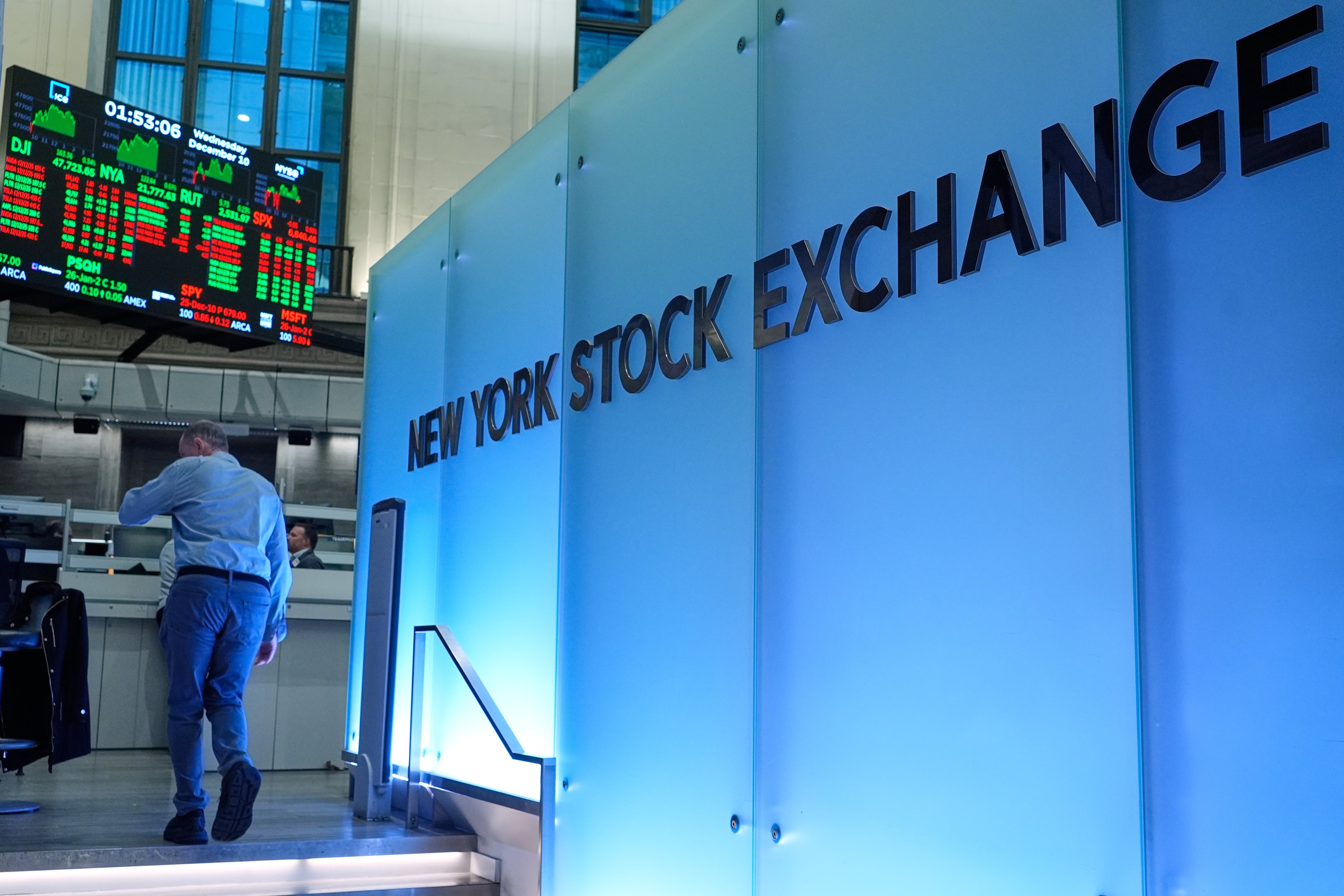NEW YORK (AP) — The U.S. stock market is flirting with its records on Tuesday after data suggested inflation across the country was a touch better last month than economists expected.
The S&P 500 rose 0.6% and was on track to top its all-time high set two weeks ago. The Dow Jones Industrial Average was up 434 points, or 1%, as of 10:15 a.m. Eastern time, while the Nasdaq composite was 0.5% higher and also heading toward a record.
Stocks got a lift from hopes that the better-than-expected inflation report will give the Federal Reserve leeway to cut interest rates at its next meeting in September.
Lower rates would give a boost to investment prices and to the economy by making it cheaper for U.S. households and businesses to borrow to buy houses, cars or equipment. President Donald Trump has angrily been calling for cuts to help the economy, often insulting the Fed’s chair personally while doing so.
But the Fed has been hesitant because of the possibility that Trump’s tariffs could make inflation much worse. Lowering rates would give inflation more fuel, potentially adding oxygen to a growing fire. That’s why Fed officials have said they wanted to see more data come in about inflation before moving.
Tuesday’s report said U.S. consumers paid prices for groceries, gasoline and other costs of living that were 2.7% higher in July than a year earlier. That’s the same inflation rate as June’s, and it was below the 2.8% that economists expected.
The report pushed traders on Wall Street to increase bets that the Fed will cut interest rates for the first time this year in September. They’re betting on a 94% chance of that, up from nearly 86% a day earlier, according to data from CME Group.
The Fed will receive one more report on inflation, as well as one more on the U.S. job market, before its next meeting, which ends Sept. 17. The most recent jobs report was a stunner, coming in much weaker than economists expected.
Some economists warn that more twists and turns in upcoming data could make the Fed’s upcoming decisions not so easy. Its twin goals are to get inflation to 2% while keeping the job market healthy, and helping one with interest rates often means hurting the other.
Even Tuesday’s better-than-expected inflation report had some discouraging undertones. An underlying measure of inflation, which economists say does a better job of predicting where inflation may be heading, hit its highest point since early this year, noted Gary Schlossberg, market strategist at Wells Fargo Investment Institute. That helped cause some up-and-down swings for Treasury yields in the bond market.
“Eventually, tariffs can show up in varying degrees in consumer prices, but these one-off price increases don’t happen all at once,” said Brian Jacobsen, chief economist at Annex Wealth Management. “That will confound the Fed and economic commentators for months to come.”
Other central banks around the world have been lowering interest rates, and Australia’s on Tuesday cut for the third time this year.
On Wall Street, Intel’s stock rose 2.3% after Trump said its CEO has an “amazing story,” less than a week after he had demanded Lip-Bu Tan’s resignation.
Circle Internet Group, the company behind the popular USDC cryptocurrency that tracks the U.S. dollar, climbed 5.1% despite reporting a larger loss for the latest quarter than analysts expected. It said its total revenue and reserve income grew 53% in its first quarter as a publicly traded company, and it topped forecasts.
On the losing side of Wall Street was Celanese, which sank 13.6% even though the chemical company delivered a better profit than expected. It said that customers in most of its markets continue to be challenged, and CEO Scott Richardson said that “the demand environment does not seem to be improving.”
Cardinal Health dropped 8.7% despite likewise reporting a stronger profit for the latest quarter than analysts expected. Its revenue fell short of forecasts, and analysts said the market’s expectations were particularly high for the company after its stock had already soared 33.3% for the year coming into the day.
Critics say the broad U.S. stock market is looking expensive after its surge from a bottom in April. That’s putting pressure on companies to deliver continued growth in profit.
In stock markets abroad, indexes edged up in China after Trump signed an executive order late Monday that delayed hefty tariffs on the world’s second-largest economy by 90 days. The move was widely expected, and the hope is that it will clear the way for a possible deal to avert a dangerous trade war between the United States and China.
Japan’s Nikkei 225 jumped 2.1%, and South Korea’s Kospi fell 0.5% for two of the world’s bigger moves.
In the bond market, the yield on the 10-year Treasury rose to 4.31% from 4.27% late Monday.
The yield on the two-year Treasury, which more closely tracks expectations for the Fed, edged down to 3.75% from 3.76%.
___
AP Business Writers Yuri Kageyama and Matt Ott contributed.









